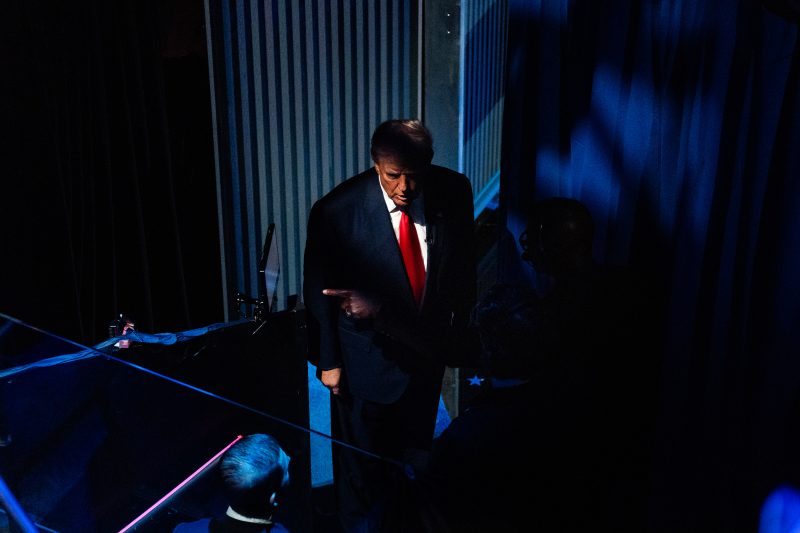In a world that often blurs the lines between reality and fiction, the power of imagination can have a profound impact on individuals and societies. However, when imagination intertwines with politics, the consequences can be both fascinating and frightening. One prominent example of this is the imaginary world constructed by former President Donald Trump.
Donald Trump has garnered attention not only for his political actions but also for the alternate reality he seems to inhabit. From promoting conspiracy theories to making false claims about election fraud, Trump’s narrative often diverges from the verifiable truth. This imaginary world he has created, built on a foundation of misinformation and manipulation, poses a threat to the democratic principles of transparency and accountability.
One of the most striking aspects of Trump’s imaginary world is the way in which he cultivates fear and division among his followers. By framing certain groups as enemies or threats, he stokes anxiety and animosity, further entrenching his supporters in this alternative reality. This fear-mongering tactic not only perpetuates conflict but also undermines efforts to bridge political divides and foster unity.
Furthermore, Trump’s imaginary world is marked by a disregard for evidence-based decision-making and a rejection of expert opinions. By dismissing scientific facts and expert advice, he creates a parallel universe where his beliefs and desires take precedence over objective reality. This denial of reality not only erodes public trust in institutions but also hampers efforts to address pressing issues such as climate change and public health crises.
In addition, the consequences of Trump’s imaginary world extend beyond mere rhetoric and political posturing. The storming of the Capitol on January 6, 2021, fueled by false claims of election fraud and designed to overturn the democratic process, exemplifies the dangerous real-world implications of living in a distorted reality. This event serves as a stark reminder of the potential for violence and chaos when fantasy merges with politics.
To combat the dangers of falling into an imaginary world, it is crucial for individuals to cultivate critical thinking skills and actively seek out accurate information. By questioning narratives, scrutinizing sources, and engaging with diverse perspectives, we can guard against the allure of misinformation and manipulation. Moreover, holding leaders accountable for their words and actions is essential in upholding the principles of truth and integrity in public discourse.
In conclusion, the construction of an imaginary world by political figures like Donald Trump can have far-reaching and unsettling implications for society. By recognizing the dangers of living in a distorted reality, cultivating a commitment to truth and reason, and holding leaders accountable for their falsehoods, we can strive to build a more informed, just, and resilient world for ourselves and future generations.
